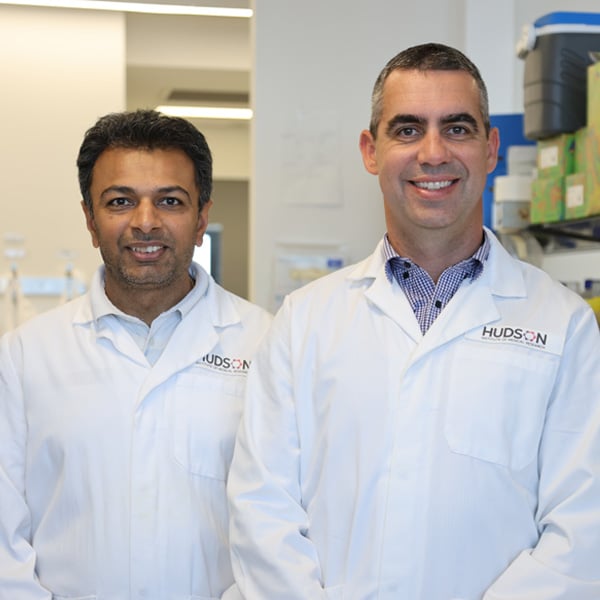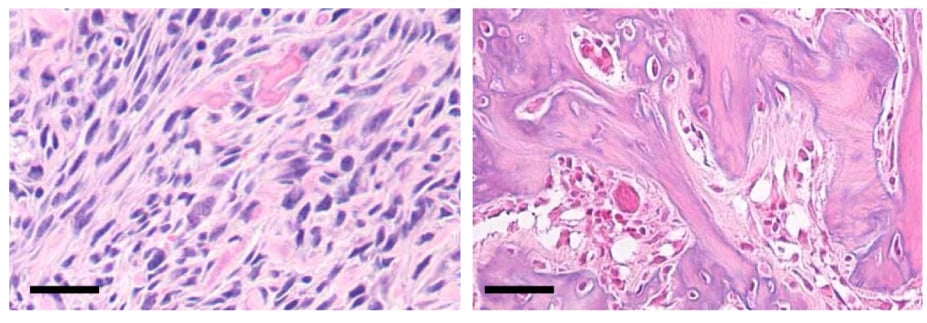A strangely named pathway that's crucial to bone growth has emerged as a key in the fight to treat the bone cancer osteosarcoma.

Osteosarcoma is a type of bone cancer that primarily affects children and young adults. It is the most common type of primary bone cancer, accounting for about 35 per cent of all cases.
Osteosarcoma is a highly aggressive cancer that can spread to other parts of the body, making osteosarcoma early detection and treatment crucial for a successful outcome.
The head of Hudson Institute's Developmental and Cancer Biology group, Dr Jason Cain, is leading research into the potential role of hedgehog signalling in osteosarcoma. His latest research is published in the journal Oncogene.
Signalling disruption linked osteosarcoma
Hedgehog signalling pathway is crucial in the development and maintenance of tissues and organs in the body.
"The pathway plays a role in cell growth, differentiation, and survival," said Dr Cain. "When this pathway is disrupted, it can lead to abnormal cell growth and the development of cancer."
"Recent studies have shown that hedgehog signalling may play a role in the development and progression of osteosarcoma. Over-expression of many components of the hedgehog signalling pathway, including a protein called Sonic Hedgehog (SHH), have been linked to the development and progression of osteosarcoma."
New ways to treat osteosarcoma
SHH is a protein that is involved in activation of the hedgehog signalling pathway. It is essential for the development of bones and other tissues in the body. However, when SHH is over-expressed, it can lead to uncontrolled cell growth and the development of cancer.

Right image | formation of mature bone in osteosarcoma in which the Hh signalling pathway has been inhibited.
Lead author, Dr Vijesh Vaghjiani said the discovery of the role of hedgehog signalling has opened up possibilities for new ways to treat osteosarcoma.
"Researchers are currently exploring the therapeutic benefit of targeting this pathway to slow down or stop the growth of cancer cells," he said.
In osteosarcoma, SHH is often over-expressed, leading to the activation of the hedgehog signalling pathway. This can result in improper differentiation of normal bone forming cells and promote the growth and survival of cancer cells.
Inhibiting signalling pathway to treat osteosarcoma
"Drugs that inhibit hedgehog signalling pathway activation have been shown to be effective in other types of cancer, and studies are currently underway to determine their effectiveness in treating osteosarcoma.
"However, not all osteosarcomas show activation of the hedgehog signalling pathway and are responsive to pathway inhibitors.
"In this study, we show that loss of function mutations the tumor suppressor, TP53, are associated with increased response to SHH and activation of the hedgehog signalling pathway," Dr Vaghjiani said.
Furthermore, osteosarcomas with loss of TP53 are responsive to hedgehog pathway inhibitor drugs, and lead to reduced tumour growth in preclinical models.
Early detection and treatment of osteosarcoma remain crucial, and individuals should consult with their doctor if they experience any symptoms or have concerns about their bone health.






